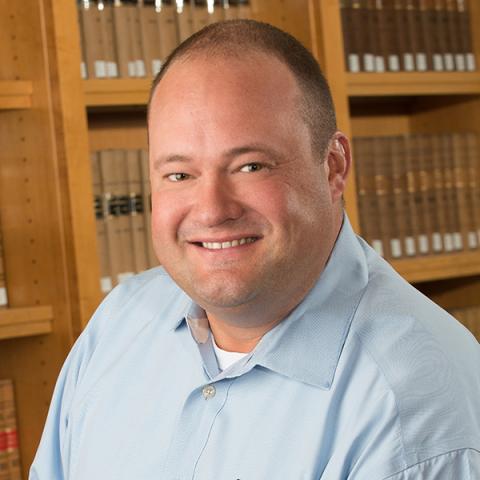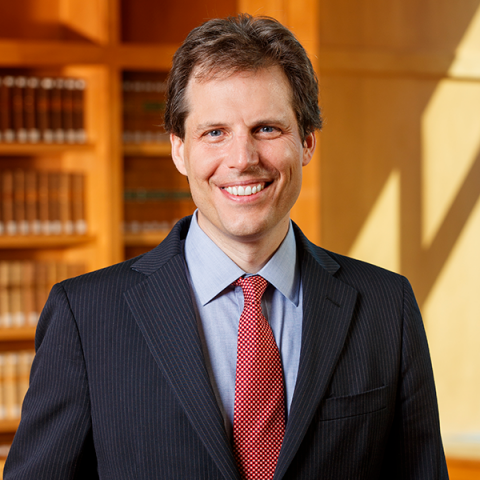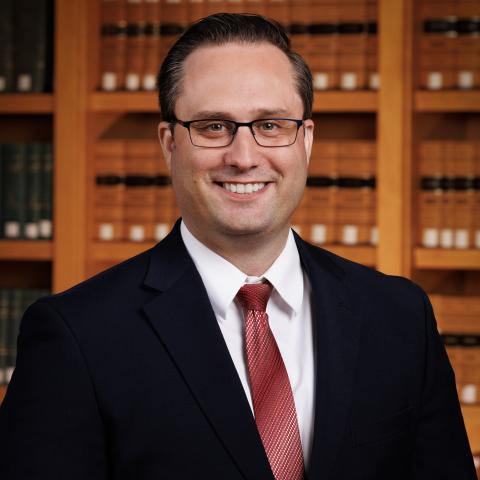
Stanton N. Beeder Adjunct Law Professor
Stan is general counsel at Hausmann Construction, Inc. In that position, he supports the executive team in contract negotiations, handling disputes, advising and administering insurance and surety claims, and provides business advice and representation on a wide range of matters affecting the company, including litigation, arbitration and mediation.
He was previously partner at Cline, Williams, Wright, Johnson & Oldfather, LLP, where his practice focused on litigation, negotiations, and transactions at the administrative, business, insurance and regulatory levels as well as providing business and personal advice on a variety of matters involving the government.
Stan graduated from the University of Nebraska in 2001 with a Bachelor’s degree in Journalism and obtained his Juris Doctor degree from the University of Nebraska in 2004, with high distinction, and was Order of the Coif.
He prides himself on being very engaged in the Lincoln and Omaha communities where he is an adjunct professor at the University of Nebraska College of Law, sits on the Executive Counsel of Lincoln YPG, is the President of the Heartland Big Brothers Big Sisters board of directors, teaches Junior Achievement, is a member of the Lancaster County Indigent Defense Advisory Committee, and is a founding member of 100s of Lincoln Men Who Care.

Eric Berger Earl Dunlap Distinguished Professor of Law
Professor Eric Berger joined the faculty in 2007. He received his B.A. with Honors in History from Brown University, and his J.D. from Columbia Law School, where he was a Kent Scholar and an Articles Editor on the Columbia Law Review. After law school, Professor Berger clerked for the Honorable Merrick B. Garland on the United States Court of Appeals for the District of Columbia Circuit. He then practiced in Jenner & Block's Washington, D.C. office, where he worked on litigation in several state and federal trial and appellate courts, including the United States Supreme Court. Professor Berger's matters there included cases involving lethal injection, same-sex marriage, the detention of foreign nationals at Guantanamo Bay, and internet obscenity.
Professor Berger teaches Constitutional Law I (structure), Constitutional Law II (rights), Constitutional History, Federal Courts, First Amendment, and Statutory Interpretation. He also teaches a class for undergraduates on Legislation and Regulation. He has been voted Professor of the Year by the upperclass law students seven times. He has also received the College Distinguished Teaching Award (in 2010), the Law Alumni Council Distinguished Faculty Award (in 2018), and the John H. Binning Award for Excellence (in 2019).
Professor Berger's scholarship focuses on constitutional law. Much of his work explores judicial decision making in constitutional cases, with special attention to deference, fact finding, rhetorical strategies, and other under-theorized factors that help shape judicial opinions in constitutional cases. His article Individual Rights, Judicial Deference, and Administrative Law Norms in Constitutional Decision Making, 91 B.U. L. REV. 2029 (2011), was named the 2011 winner of the American Constitution Society's Richard D. Cudahy Writing Competition on Regulatory and Administrative Law. Professor Berger has also written extensively about lethal injection litigation.
Professor Berger has testified in the Nebraska legislature about a variety of constitutional issues, including free speech, lethal injection, and the process for amending the U.S. Constitution. He is also the faculty advisor to the Law College's chapter of the American Constitution Society and to the Community Legal Education Project, which sends law students into Lincoln schools and community centers to teach about the Constitution.
Professor Berger has also published two video lecture courses about constitutional law with Wondrium (also known as The Great Courses). The first, Law School for Everyone: Constitutional Law (2019), is a twelve lecture course introducing some of the topics and questions students would encounter in an introductory class on constitutional law. The second, The Constitution Through U.S. History (2022), is a twenty-four lecture course exploring the role of constitutional issues in American political, social, and cultural history from the founding to the present.
Professor Berger served as Associate Dean for Faculty from 2016 to 2020.
Watch how Professor Berger examines lethal injection.
Dennis J Burnett Adjunct Professor of Law
Professor Burnett is an attorney and business advisor with experience in commercial transactions and regulatory matters representing both U.S. and foreign clients in the aerospace industry. He has extensive international experience; particularly in Europe, Russia and China. Professor Burnett has recognized subject matter expertise in all aspects of commercial space activities, export licensing and compliance and foreign ownership control or influence (“FOCI”) mitigation for U.S. companies holding U.S. facility security clearances. His experience includes government service, corporate counsel and private practice.
Some highlights from Professor Burnett’s career include: representing the Russian Space Agency in the negotiation of the first multi-million dollar Space Station contract with NASA; negotiation of several satellite purchase contracts; drafting the model launch services agreement for an international launch service provider; preparing and obtaining satellite operating licenses for both communications satellites and remote sensing satellites and obtaining national security waivers from the President to allow launches of U.S. satellites or U.S. satellite components from China.
Professor Burnett actively supports development of space law and policy and export law and policy. He is a member of the D.C. Bar, American Bar Association, American Association of Aeronautics and Astronautics and is a member and Treasurer of the International Institute of Space Law. He also served three terms on the Defense Trade Advisory Group for the U.S. Department of State. Professor Burnett is the Vice Chair of the Advisory Board for the LL.M. Space, Cyber and Telecom Program of the University of Nebraska College of Law.

Brandon J. Johnson Assistant Professor of Law
Professor Johnson’s research sits at the intersection of administrative law, the separation of powers, and the law of democracy. His writing focuses on the ways democratic institutions, including Congress, the Presidency, and the Administrative State interact, and the ways in which the courts attempt to shape those interactions. Professor Johnson’s articles and essays have appeared in nationally recognized publications including Wake Forest Law Review, the University of Pennsylvania Journal of International Law, Boston University Law Review, and the Harvard Law Review Blog. Professor Johnson will be teaching courses on Administrative Law, Civil Procedure, and Election Law.
Prior to joining the faculty at the College of Law in 2023, Professor Johnson served for two years as an Acting Assistant Professor in NYU’s Lawyering Program. Before beginning his career in academia Professor Johnson practiced as a litigation associate at Sidley Austin LLP in Chicago, where he worked primarily on white collar investigations, and clerked for the Hon. Michael Y. Scudder on the United States Court of Appeals for the Seventh Circuit.
Professor Johnson has a Master’s Degree in Classical Theatre from Kingston University London, and obtained his J.D. summa cum laude from Northwestern University Pritzker School of Law in 2018 where he was also elected as a member of the Order of the Coif.